On Saturday, Sen. Kamala Harris (D-CA) posted a video wishing people a “Happy Kwanzaa” and recounting her childhood memories of the holiday. Her purported memories raised a few eyebrows because — well, you’ll catch on quickly.
In the video, Harris said:
Happy holidays, everyone. I wanted to take a moment to send my warmest wishes to everyone celebrating Kwanzaa. Like so many other holidays, we will be celebrating Kwanzaa a little bit differently this season in our home. We’ll be doing it over Zoom.
You know, my sister and I, we grew up celebrating Kwanzaa. Every year our family would – and our extended family, we would gather around, across multiple generations, and we’d tell stories. The kids would sit on the carpet and the elders would sit on chairs, and we would light the candles, and of course afterwards have a beautiful meal. And, of course, there was always the discussion of the seven principles. And my favorite, I have to tell you, was always the one about self-determination, kujichagulia.
And, you know, essentially it’s about be and do. Be the person you want to be and do the things you want to do and do the things that need to be done. It’s about not letting anyone write our future for us, but instead going out and writing it for ourselves. And that principle motivates me today, as we seek to confront the challenges facing our country and to build a brighter future for all Americans. So, to everyone who is celebrating, Happy Kwanzaa from our family to yours.
If you can stomach watching her melodramatic delivery, here it is.
What’s so curious about Harris’ memories, you might ask? Well, for one thing, the first Kwanzaa was in 1966, two years after Harris was born, and started in Southern California, not the Bay Area where Harris lived from the time she was born until she was 12. We know that Harris’ father, Donald Harris, who hailed from Jamaica, was a member of the Afro American Association at Berkeley in the 1960s. Maulana Karenga, the FBI informant who concocted Kwanzaa was also a member of that group, but from a chapter in Southern California. After a semi-intensive internet search, the only link I could find between the two was an opinion piece Karenga published a few weeks ago about Harris’ historic achievements that simply mentioned the names of her parents. So, it’s not as if Karenga brought Kwanzaa to Harris’ Berkeley/Oakland community.
Harris’ parents separated when she was 7, in 1971, and a New Yorker piece quotes Harris’ niece, Meena, as saying that Donald Harris “was not around after the divorce.” Meena Harris also said that Kamala’s “experience and relationship with blackness is through being raised in these communities in Berkeley and Oakland, and not through the lens of being Caribbean.”
Five years later, Kamala’s mother moved her daughters to Montreal, Canada, where she’d obtained a position at McGill University. Kamala’s mother, Shyamala Gopalan, was born and raised in India then left the country to pursue her education in the United States. Gopalan’s family, part of the ruling caste, remained in India. Gopalan took her daughters to India to visit on occasion. Kamala and her sister had little contact with her father, and even less contact with his extended family in Jamaica.
It’s highly unlikely that Kamala Harris celebrated Kwanzaa every year in Berkeley/Oakland or in Canada with multiple generations in attendance and extended family, knowing these facts about her life. She’s never made a big deal about Kwanzaa on social media; between 2015 and 2020 she never once mentioned it. In prior years, the only mention was a brief “Happy Kwanzaa” tweet — and those were only in 2013, 2014, and 2015. For someone with such detailed and vivid memories of the holiday, the near-complete absence of any mention of said memories in the media until this year is curious. But, of course, it’s one more opportunity for Kamala Harris to proclaim she’s “just like us” and doing holidays over zoom.
Now, to be fair, the New York Times profile of Harris’ parents’ relationship notes that after her parents divorced Kamala and her sister spent a lot of time with Black families in Oakland/Berkeley who were active in the Afro American Association, and a 2004 article about Kwanzaa notes that big celebrations in the Bay Area happened far sooner than celebrations in other parts of the country. To give Harris the (undeserved) benefit of the doubt, let’s say that maybe she celebrated a few Kwanzaa’s with these adopted family members. At most, that would have consisted of five Kwanzaa celebrations, and even then, they wouldn’t have consisted of multiple generations of extended family.
Harris has shared at least a few family photos from her years growing up in the Bay Area. Is it too cynical to ask that she produce one of a Kwanzaa celebration?
For more peak cringe, here’s a video of Kamala Harris and her husband wishing everyone a Merry Christmas. Watch for her to refer to him as “Dougie.”
Our traditions may look a little different this year but the love we share remains the same. From our family to yours, have a safe and very merry Christmas. pic.twitter.com/RSjkHwvcU2
— Kamala Harris (@KamalaHarris) December 25, 2020
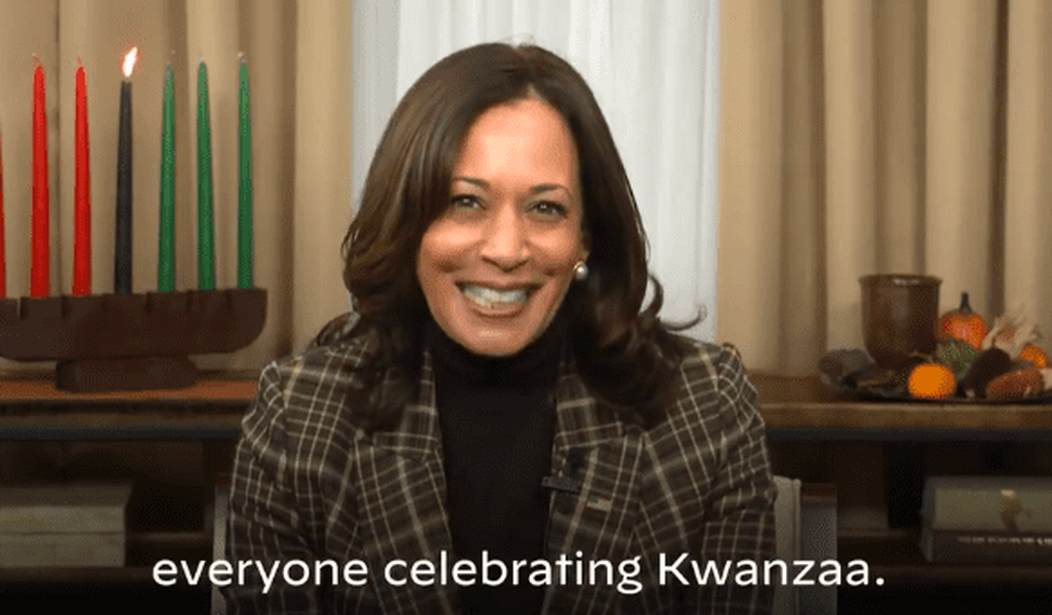
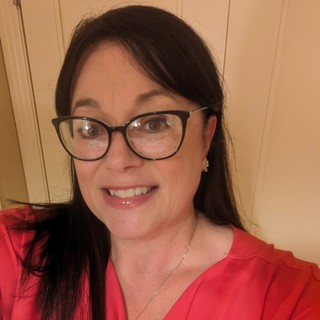
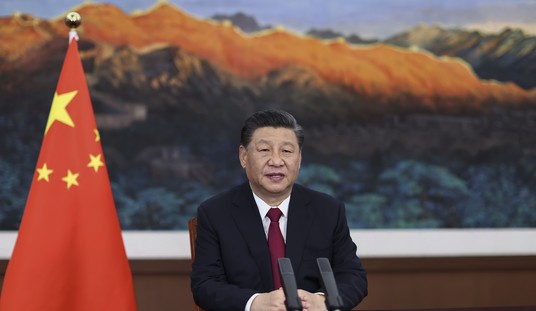


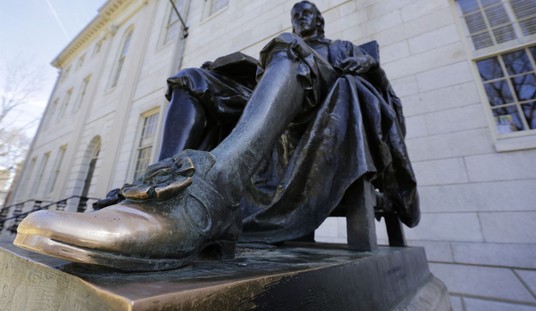


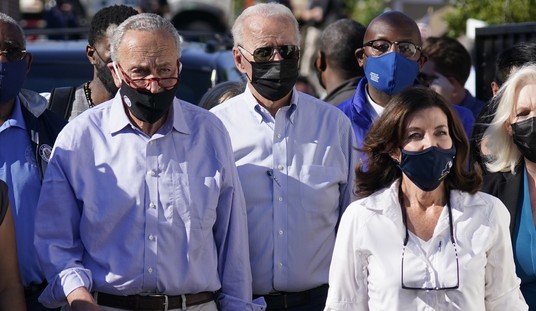


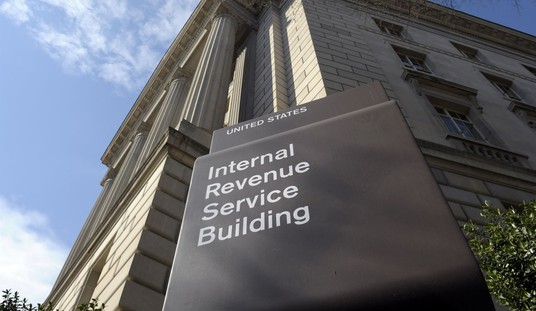
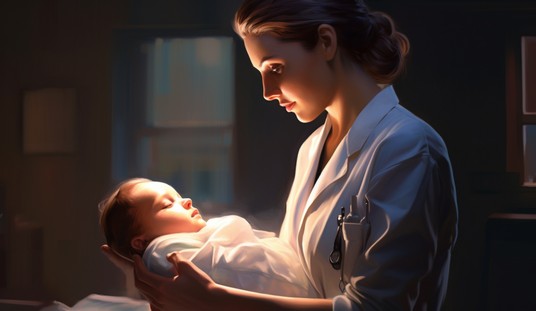

Join the conversation as a VIP Member